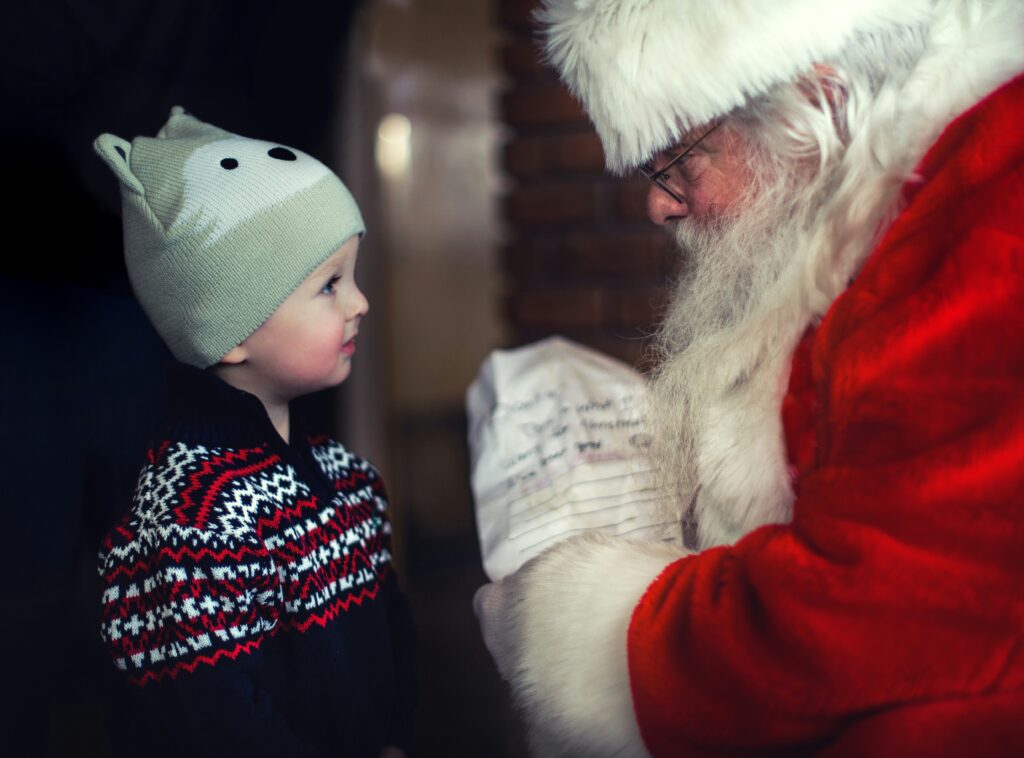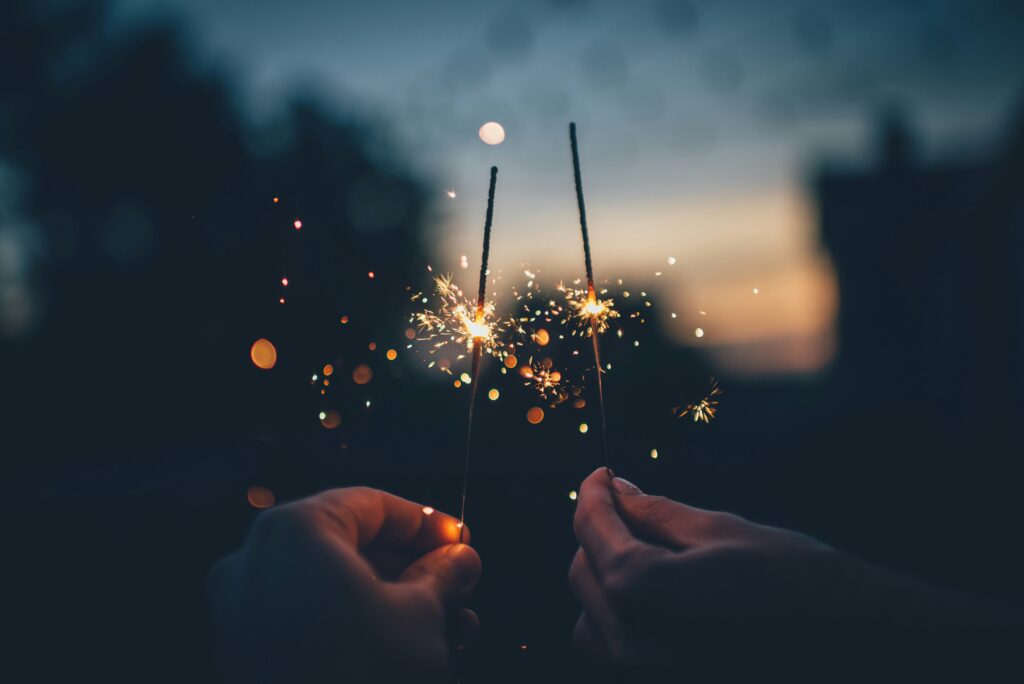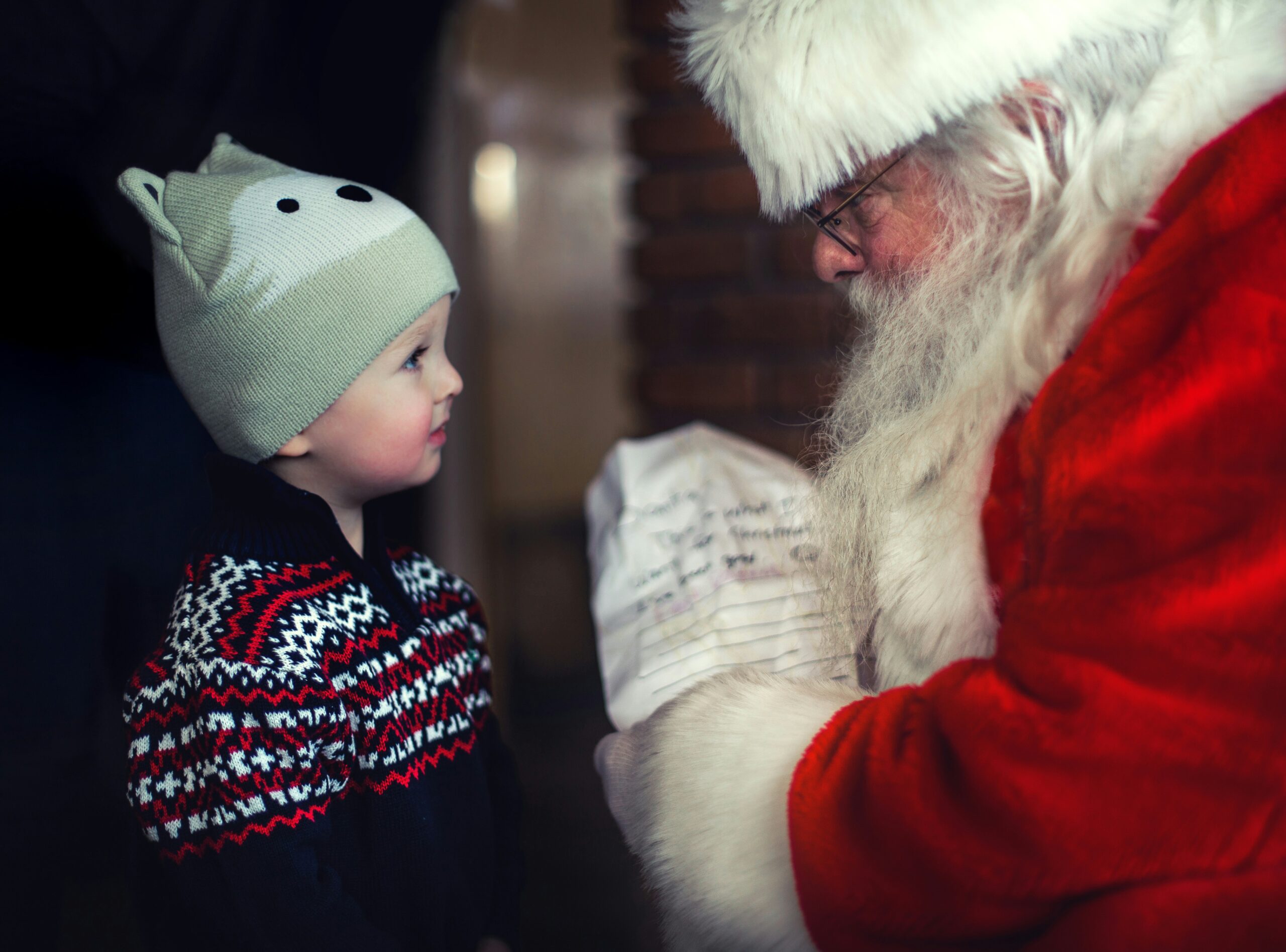The holiday season is upon us, filling the air with joy and anticipation. As you gather with loved ones, your mind is bound to drift towards the cherished traditions that define this time of year. But have you ever wondered why these traditions hold such significance? From decorating the tree to indulging in festive treats, holiday traditions not only bring us together, but also serve as a powerful reminder of our heritage, fostering a sense of belonging and creating lasting memories. In this article, we will explore why holiday traditions are so important, and how they contribute to the magic and meaning of this special time. So, grab a cozy blanket, sip on some hot cocoa, and let’s embark on a journey to discover the true value of holiday traditions.
Table of Contents
Preserving Cultural Heritage
Promotes cultural identity
Holiday traditions are an essential tool in preserving cultural heritage. By participating in and passing down these rituals and customs, individuals can maintain a connection to their ancestral roots. Whether it’s celebrating a specific religious holiday, observing traditional festivals, or engaging in cultural practices, these traditions promote a sense of identity and pride in one’s cultural heritage. They serve as a reminder of where we come from and who we are, helping to preserve our unique cultural identities.
Connects generations
Holiday traditions play a crucial role in connecting different generations within a family or community. They provide an opportunity for older generations to share their experiences and knowledge with the younger ones, passing on valuable traditions and stories. The act of coming together to celebrate these traditions forms a bond between family members, strengthening relationships and fostering a sense of belonging. These traditions create a bridge between the past, present, and future, ensuring that cultural values and customs are not lost but are carried forward through generations.
Preserves history
Holiday traditions offer a window into the history and heritage of a culture or community. They often have deep historical roots, borne out of significant events or long-standing practices. By continuing to observe these traditions, we honor the past and keep history alive. They serve as a tangible link to our ancestors, allowing us to understand and appreciate their struggles, triumphs, and contributions to our collective history. Preserving these traditions ensures that the lessons and stories from the past are not forgotten, providing a valuable perspective for future generations.
Creating a Sense of Belonging
Fosters a feeling of togetherness
Holiday traditions bring people together, fostering a strong sense of togetherness among family members, friends, and even entire communities. Whether it’s gathering around the table for a festive meal or participating in cultural ceremonies, these traditions create a shared experience that strengthens bonds. The feeling of togetherness that arises from these traditions helps individuals feel connected and supported, enhancing their overall sense of belonging.
Creates a sense of community
Beyond immediate family, holiday traditions often extend to the wider community. Festivals, parades, and community events are a common part of many cultural traditions. These events provide an opportunity for people to come together, celebrate, and feel a sense of unity. By participating in these communal traditions, individuals become part of something larger than themselves, contributing to the overall fabric of their community.
Establishes a sense of home
For many, holiday traditions are intimately tied to their concept of home. Whether it’s decorating the house, preparing special meals, or engaging in specific activities, these traditions help create a familiar and comforting environment. They evoke a sense of warmth, safety, and stability, making individuals feel rooted and secure in their surroundings. These traditions establish a sense of home, making any place feel like a haven of familiarity and cherished memories.

Promoting Emotional Well-being
Provides stability and comfort
Holiday traditions provide a sense of stability and routine in our lives. In a rapidly changing world, these traditions offer a comforting anchor, creating a sense of predictability and reassurance. They provide us with a framework for our celebrations and help us navigate the ups and downs of life. Engaging in these familiar rituals can bring a sense of calm and stability, promoting emotional well-being.
Reduces stress and anxiety
Amidst the hustle and bustle of daily life, holiday traditions offer a reprieve from stress and anxiety. They give us permission to slow down, focus on what truly matters, and savor the moment. Through their familiar and enjoyable nature, these traditions have the power to alleviate stress and promote relaxation. Whether it’s decorating the Christmas tree, lighting the menorah, or exchanging gifts, these traditions create a sense of joy and peace during what can otherwise be a hectic time of year.
Invokes nostalgia and happiness
Holiday traditions often evoke a strong sense of nostalgia, reminding us of childhood memories, cherished moments, and times spent with loved ones. This nostalgia can elicit feelings of happiness, contentment, and gratitude. Engaging in these traditions can transport us back in time, allowing us to relive those precious moments and create new ones. The emotional connection to these traditions can uplift our spirits, bringing happiness and joy to our lives.
Teaching Values and Virtues
Instills core values
Holiday traditions serve as a powerful vehicle for instilling core values in individuals, especially children. Whether it’s compassion, respect, or gratitude, these traditions provide tangible experiences that exemplify these values. Through participating in acts of kindness, giving back to the community, or expressing gratitude, individuals learn the importance of these virtues. These values become ingrained in their character, shaping them into compassionate and responsible individuals.
Encourages empathy and gratitude
Holiday traditions often emphasize acts of empathy and gratitude. Whether it’s donating to charity, volunteering, or expressing thanks to loved ones, these traditions teach the importance of empathy and gratitude towards others. By actively engaging in these practices, individuals develop a greater understanding of the needs and struggles of others. They also cultivate a sense of gratitude for the blessings in their own lives. These lessons in empathy and gratitude extend far beyond the holiday season, influencing how individuals interact with others on a daily basis.
Promotes generosity and kindness
Holiday traditions highlight the value of generosity and kindness. Whether it’s exchanging gifts, preparing meals for others, or inviting those less fortunate to share in the festivities, these traditions emphasize the importance of giving to others. They encourage individuals to be mindful of the needs of those around them and to extend a helping hand wherever possible. By promoting generosity and kindness, these traditions contribute to building a more compassionate and caring society.

Fostering Creativity and Imagination
Inspires artistic expression
Holiday traditions often provide a platform for artistic expression. Whether it’s creating homemade decorations, designing costumes, or composing music, these traditions encourage individuals to tap into their creativity. They inspire individuals to think outside the box, experiment with different artistic mediums, and showcase their unique talents. Through these creative outlets, holiday traditions foster a sense of self-expression and allow individuals to share their artistic gifts with others.
Encourages storytelling
Storytelling is an integral part of many holiday traditions. Whether it’s sharing ancient myths and legends, recounting family anecdotes, or reading holiday-themed books, these traditions encourage the art of storytelling. They pass on cherished tales from generation to generation, keeping them alive in the hearts and minds of individuals. By engaging in storytelling, holiday traditions help cultivate imagination, language skills, and the ability to connect with others through narratives.
Cultivates imagination
Holiday traditions often ignite the spark of imagination in individuals. Whether it’s envisioning Santa Claus flying through the night sky, imagining the magic of a Hanukkah menorah, or picturing the vibrant colors of a Diwali celebration, these traditions foster a sense of wonder and awe. They invite individuals to use their imaginations, exploring new possibilities and expanding their creative horizons. By cultivating imagination, holiday traditions nurture individual creativity and contribute to personal growth.
Building Family Bonds
Strengthens familial relationships
Holiday traditions play a significant role in strengthening familial bonds. These activities provide opportunities for families to come together, spend quality time, and create meaningful memories. Whether it’s gathering around the dinner table to share a special meal, engaging in festive activities, or celebrating cultural customs, these traditions facilitate communication, understanding, and connection between family members. They create a shared sense of identity and belonging, fostering a deep-rooted bond that withstands the test of time.
Creates lasting memories
Holiday traditions have the power to create lasting memories that individuals carry with them throughout their lives. The moments shared with loved ones during these special occasions become cherished memories, evoking a sense of joy and warmth long after the festivities have ended. Whether it’s the laughter and excitement of opening presents, the aroma of favorite holiday dishes, or the joy of singing carols together, these memories become a cherished part of one’s personal story.
Encourages quality time
In our fast-paced and technology-driven world, holiday traditions remind us of the importance of quality time spent with loved ones. By engaging in these traditions, individuals prioritize connection and communication with their family members. Whether it’s playing games, engaging in heartfelt conversations, or simply enjoying each other’s company, these traditions provide dedicated time for bonding and strengthening relationships. They serve as a reminder that the most valuable gift we can give to our loved ones is our presence and undivided attention.

Continuing Family Legacies
Passing down traditions from generation to generation
One of the essential roles of holiday traditions is to pass down cherished practices, rituals, and customs from generation to generation. These traditions ensure that the legacy of the past continues to shape the present and future. As older family members share their knowledge and experiences, younger generations learn the significance of these traditions and carry them forward. By preserving family traditions, individuals honor their lineage and maintain a sense of continuity, bridging the gap between past, present, and future.
Preserving family rituals and customs
Holiday traditions often revolve around family-specific rituals and customs. These unique practices reflect the values, beliefs, and experiences of a particular family. By preserving these rituals, individuals maintain a sense of identity and connection to their family heritage. Whether it’s the way a certain meal is prepared, the order in which decorations are put up, or the specific songs sung during festivities, these customs provide a sense of familiarity and continuity that strengthens family ties.
Honoring ancestors and heritage
Holiday traditions offer a space for individuals to honor and remember their ancestors and cultural heritage. Whether it’s setting a place at the table for a departed loved one, performing specific rituals to pay tribute, or visiting ancestral sites, these traditions allow individuals to connect with their roots and acknowledge the contributions of their predecessors. By honoring ancestors and cultural heritage, individuals develop a deeper appreciation for their family’s history and their place within it.
Enhancing Cultural Understanding
Exposes individuals to different cultures
Holiday traditions are a unique opportunity to expose individuals to different cultures and ways of life. As people participate in the traditions of various communities and cultural groups, they gain insights into their beliefs, practices, and values. This exposure fosters cultural understanding and appreciation, breaking down barriers and building bridges of empathy and respect. By embracing and understanding the traditions of others, individuals become more accepting and open-minded, contributing to a more inclusive and harmonious society.
Encourages tolerance and acceptance
Through the celebration of holiday traditions, individuals learn to embrace diversity and value different perspectives. By encountering and engaging with various traditions, individuals develop a sense of tolerance and acceptance towards those who may have different beliefs or customs. This exposure helps to dispel stereotypes, promote empathy, and foster a sense of unity amongst diverse communities. Holiday traditions provide a powerful reminder that despite our differences, we all share an inherent need for connection and celebration.
Promotes diversity and inclusivity
Holiday traditions emphasize the importance of diversity and inclusivity. They provide a platform for marginalized communities to share their unique traditions and be recognized and celebrated. By actively engaging with these traditions, individuals actively contribute to the promotion of diversity and inclusivity, fostering a society that values and respects all cultures. Holiday traditions become a tapestry of collective celebrations, demonstrating that our differences are what make us stronger and more vibrant as a community.
Celebrating and Expressing Identity
Allows individuals to showcase their personal traditions
Holiday traditions provide individuals with an opportunity to showcase their personal and cultural traditions. Whether it’s participating in specific religious observances, traditional festivals, or customs unique to their family or community, these traditions offer a chance for self-expression. They allow individuals to share their values, beliefs, and cultural identity with others, fostering a deeper connection and understanding. By celebrating and expressing their own traditions, individuals contribute to a more diverse and culturally rich society.
Expresses individuality and uniqueness
Holiday traditions enable individuals to express their individuality and uniqueness. They provide an avenue for people to deviate from the norm and be true to themselves. Whether it’s through innovative decorations, alternative practices, or personalized celebrations, individuals can put their own spin on established traditions, allowing their authentic selves to shine through. By embracing individuality and uniqueness, holiday traditions celebrate the diversity of human experiences and perspectives.
Celebrates personal values and beliefs
Holiday traditions serve as a reflection and celebration of personal values and beliefs. They allow individuals to honor and express what is most important to them. Whether it’s through acts of kindness, spiritual practices, or meaningful rituals, these traditions provide an opportunity to reinforce personal values and beliefs. By celebrating these traditions, individuals live in alignment with their core principles, finding deep fulfillment and purpose in the expression of their values.
Creating Anticipation and Excitement
Builds anticipation and excitement for special occasions
Holiday traditions play a significant role in building anticipation and excitement for special occasions. From the moment the first decoration is hung or the first note of a familiar song is heard, these traditions create a sense of excitement and anticipation. They mark the beginning of the holiday season, generating a feeling of joy and anticipation for the festivities to come. The build-up to a holiday celebration is often just as rewarding as the event itself, as individuals eagerly prepare and count down the days until they can fully immerse themselves in the joy and magic of the occasion.
Adds joy and magic to the holiday season
Holiday traditions infuse the holiday season with an extra dose of joy and magic. Whether it’s through the sparkle of holiday lights, the enchantment of seasonal decorations, or the anticipation of opening presents, these traditions create a sense of wonder and awe. They evoke feelings of childlike delight and excitement, transporting individuals into a world of joy and enchantment. By participating in these traditions, individuals can experience the magic of the holiday season and create memories that will last a lifetime.
Sparks a sense of wonder and awe
One of the greatest gifts of holiday traditions is the ability to spark a sense of wonder and awe in individuals of all ages. Whether it’s marveling at a breathtaking display of fireworks, witnessing a beautiful religious ceremony, or experiencing the joy of sharing a meal with loved ones, these traditions remind us of the beauty and magic that exists in the world. They ignite a spark of childlike curiosity and wonder, allowing us to see the world through fresh eyes and appreciate the moments of awe that surround us.
In conclusion, holiday traditions serve as extraordinary vessels through which individuals can experience a multitude of benefits. From preserving cultural heritage and teaching values, to fostering creativity and building family bonds, these traditions play a vital role in enhancing our emotional well-being and cultural understanding. They celebrate our identity, create a sense of belonging, and add joy and anticipation to our lives. As we continue to embrace and cherish these traditions, we ensure that the threads connecting us to our past are not lost but are passed on to future generations, weaving a tapestry of shared experiences and cherished memories for years to come.

